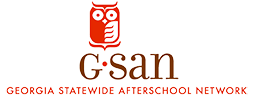High-quality summer programs are critical in making sure that Georgia’s youth have a safe, enriching place to go when school is out. Low-income students often lack opportunities during the summer and actually start the school year off in a worse position than where they finished the previous school year. This is often referred to as the summer slide and accounts for about two-thirds of the achievement gap in ninth grade reading. Quality summer programs can drastically help mitigate these effects for low-income youth. Check out the resources below to support Georgia’s youth during the summer. This Afterschool Matters paper examines the importance of non-academic settings in helping English Learner students learn English. This Afterschool Matters paper explores the potential of out-of-school time programs to foster English Learner success. This brief identifies reasons that it is important to focus on children of Latino immigrants, discussed what out-of-school time programs can do for these children, and provides advice on how to attract and retain children of immigrants in these programs. This resource was developed to help you think about ways your program can improve its services for children and families who are learning English. This resource provides a list of strategies to support students who are learning English. This tool kit contains the information and practical strategies you need to create a nurturing and welcoming environment for all children in your after school program. This brief highlights the role that afterschool programs can play in the learning experiences of students with or without disabilities and how afterschool programs can help students gain acceptance, confidence and strength to succeed in school, graduate from school, and thrive in their career and life. Learn about the laws that impact afterschool and best practice guidelines for managing children with special needs. The Anti-Defamation League (ADL) developed this Educator’s Guide to Love Has No Labels to help you facilitate discussions about bias and discrimination. The guide includes key words, discussion questions, extension activities by grade level (grades 3–12), tips for rethinking bias and additional resources. This video introduces the viewer to the needs of LGBTQ youth who have experienced trauma. Included with the video are a resource guide and training tool. Sexuality and Relationship Resources Tanenbaum and Teaching Tolerance have partnered to create a series of webinars about the importance of including religious diversity in classroom content. Learn ways to create and modify lessons plans so they address religious diversity and be prepared to facilitate classroom discussions about religious diversity and beliefs. This publication from the National Mentoring Partnership is designed to help facilitate discussion about diversity among youth and adults. Diversity is discussed through a variety of stories and poems that each includes a brief discussion and several thought-provoking questions. The National Mentoring Partnership has partnered with My Brother’s Keeper Alliance to provide some high-level technical assistance around best practices for designing effective mentoring services for boys and young men of color. Below are the past recorded webinars. To view future webinars, view our events. This resource will help program staff take the time to explore the following issues and uncover and share how their perspectives play out in their interactions with youth: biases and misconceptions about youth with learning differences, from different countries, cultures, or religious backgrounds, and from varying socio-economic situations. 10 Tips for Affirming Diversity and Supporting Equity in New After School Programs, California Tomorrow A wide range of cultural competences are addressed in this creative resource for raising diversity awareness in teenagers. The book incorporates a variety of learning styles and skill levels in three sections that include personal-awareness activities, building cultural awareness around a particular topic, and practice activities for trying out new relationship-building methods. Self-reflection is crucial to teaching and learning. These self-directed activities and readings will help providers explore, refine and improve classroom methods. Topics include racism and white privilege, and teaching tolerance’s Anti-bias Framework. This resource will help program staff take the time to explore the following issues and uncover and share how their perspectives play out in their interactions with youth: biases and misconceptions about youth with learning differences, from different countries, cultures, or religious backgrounds, and from varying socio-economic situations.Working with Diverse Populations
On this Page:
English Language Learners
The Effect of Afterschool Program Participation on English Language Acquisition
English Learners and Out-of-School Time Programs
Children of Latino Immigrants and Out-of-School Time Programs
English Language Learners in Out-of-School Time, Boston Children’s Museum
Strategies to Support English Language Learners, Edutopia
English Language Learners in Out-of-School Time
Strategies to Support English Language Learners
Students with Special Needs
Including Students with Disabilities in Afterschool
Inclusion Tool Kit: For Afterschool Programs
Inclusive Practices Tip Sheets, Special Needs Inclusion Project
Promoting Diversity, Access, Equity and Inclusion, San Francisco Expanded Learning Collaborative
Afterschool Supporting Students with Disabilities and Other Special Needs
Inclusion of Children with Special Needs in After School and Summer Programs
LGBTQ+
Love has no labels: Educator’s Guide
Safe Spaces. Safe Places: Creating Welcoming and Inclusive Environments for Traumatized LGBTQ Youth
Trevor Project’s Lifeguard Workshop
Promoting Diversity
Religious Diversity in the Classroom: Fostering a Culture of Respect
Diversity Discussion Starters
My Brother’s Keeper Alliance Webinar Series
Promoting Diversity, Access, Equity and Inclusion
Make a World of Difference: 50 Asset-Building Activities to Help Teens Explore Diversity (Book)
Teaching Tolerance (Resources & Curriculum)
Promoting Diversity, Access, Equity and Inclusion
Did You Know?
More Health & Well-Being
Additional Resources
Afterschool in Georgia
College & Career Readiness
Environment & Climate
Find a Program
For Parents
Funding Opportunities
Health & Well-Being
Increasing Quality
Lights on Afterschool
Literacy, History, & Global Education
Newsletter Archive
Science, Technology, Engineering, Art & Math
Partnerships
Program Administration
Program Spotlight
Policy & Advocacy
Starting an Afterschool Program
Summer
Working With Diverse Populations
Youth Voice & Choice

